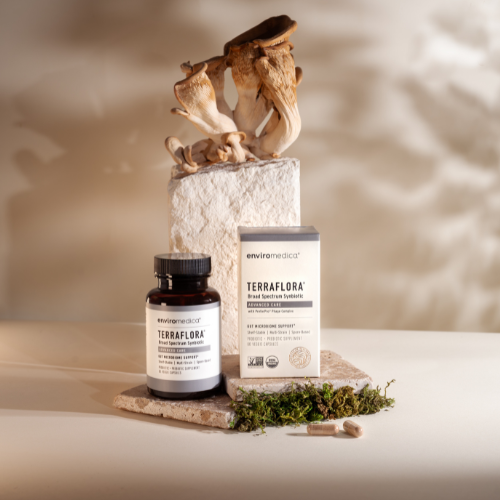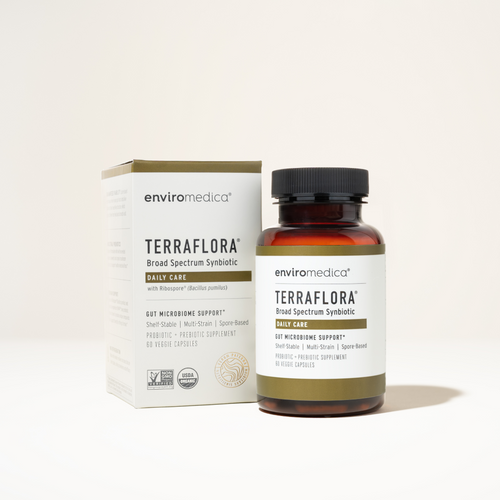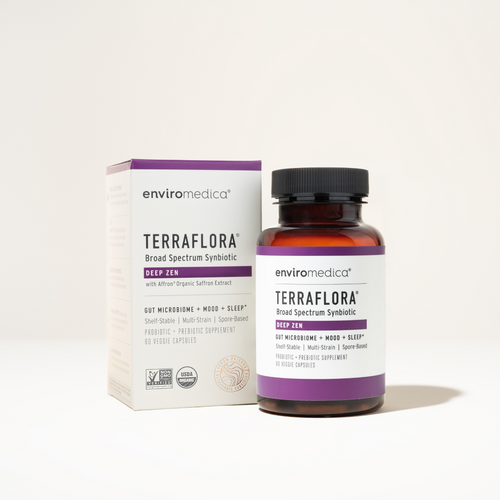Building resilience through magnesium and gut health
Stress is woven into our fast-paced lifestyles, our constant digital connectivity, and the environmental toxins that surround us. Yet, unlike our ancestors who faced acute stressors like food scarcity or predatory threats before returning to a state of balance, we exist in a chronic stress state that our biology was never designed for.
This unrelenting stress does more than fray our nerves; it silently disrupts our sleep, digestion, and mood, depleting essential nutrients that keep us grounded and resilient. Two of the most impacted systems? Magnesium levels and gut health: two vital pillars of stress adaptation that we must reclaim for optimal well-being.
Magnesium: The mineral of adaptation
Magnesium, often called nature’s relaxation mineral, was once abundant in the food and water of our ancestors. It coursed through unpolluted rivers, infused wild plants, and enriched the diets of early humans. But with modern agricultural depletion and industrialized food systems, magnesium levels in soil and water have declined dramatically, leaving many in a state of chronic deficiency. 1
The link between stress and magnesium deficiency is bidirectional. The more stress we experience, the more magnesium we lose, excreted through urine in response to elevated cortisol and adrenaline. This depletion weakens the nervous system’s ability
to regulate stress, amplifying anxiety, tension, and fatigue.2 Without sufficient magnesium, the brain remains in a heightened state of reactivity, as the mineral plays a key role in calming NMDA receptors, which control excitability in the nervous system. This explains why low magnesium is associated with increased stress sensitivity, disrupted sleep, and mood instability.3
Beyond its neurological effects, magnesium is deeply intertwined with sleep quality. It regulates melatonin production, helping to maintain the body's circadian rhythm, and supports deep, restorative rest. Yet, chronic stress depletes this mineral just as it increases the demand for it, making it more difficult to fall asleep and stay asleep.4
The gut-brain axis: Stress and the microbiome
The human microbiome evolved in constant interaction with the natural world. From birth, ancestral populations were exposed to soil microbes, fermented foods, and diverse plant fibers, cultivating a gut ecosystem rich in beneficial bacteria. But today’s environment, stripped of microbial diversity, laced with antibiotics, and dominated by sterile, processed foods, has profoundly altered the gut-brain connection.5
Stress is one of the most significant disruptors of the microbiome. When the brain perceives stress, it signals the gut through the vagus nerve, altering bacterial composition and digestive function. Chronic stress leads to an overgrowth of opportunistic bacteria while depleting beneficial strains that play a crucial role in neurotransmitter production, including serotonin and GABA, the very chemicals responsible for regulating mood, relaxation, and resilience.6
A weakened microbiome also compromises gut barrier integrity, leading to increased intestinal permeability, commonly known as “leaky gut.” As the gut lining becomes more permeable, inflammatory molecules enter the bloodstream, triggering systemic inflammation that amplifies anxiety, fatigue, and brain fog .7 In this way, stress doesn’t just disrupt the mind; it physically alters the gut, creating a feedback loop that intensifies its effects.
Digestion itself is another casualty of chronic stress. The body, prioritizing survival, shifts energy away from digestion during prolonged stress exposure, reducing stomach acid, slowing enzyme production, and impairing nutrient absorption. This is why many people experience bloating, constipation, or indigestion during high-stress periods, it’s not a coincidence; it’s biology at work. 8
Reclaiming stress resilience through ancestral wisdom
While stress is inevitable, our response to it is adaptable. Ancestral health teaches us that resilience isn’t built through avoidance but through restoring the foundational pillars that regulate our stress response, magnesium-rich nourishment, microbiome diversity, and daily interactions with nature.
Replenishing magnesium stores through wild-caught fish, cacao, unrefined sea salt, and mineral-rich water can counteract the modern depletion cycle. Magnesium baths, topical applications, and supplementation further support nervous system balance, creating an internal buffer against stress.
Supporting the gut microbiome through fermented foods, foraged plants, and soil exposure rebuilds the gut-brain axis, restoring neurotransmitter function and reducing inflammatory stress responses. Incorporating prebiotic-rich wild fibers and polyphenols, such as dandelion greens, artichokes, and berries, can help replenish microbial diversity lost through industrialized diets.
Equally essential is reconnecting with natural rhythms. Grounding (walking barefoot), sun exposure, and deep breathing all activate the parasympathetic nervous system, signaling the body to shift from survival mode to restoration. These primal micro-actions, once an intrinsic part of daily life, are powerful interventions in the face of modern stressors.
Our bodies were designed for balance. By restoring what has been lost, through magnesium, gut health, and reconnection to nature, we reclaim our ability to not only survive, but thrive in the face of stress.
References
- 1. Pickering G, Mazur A, Trousselard M, et al. Magnesium status and stress: The vicious circle concept revisited. Nutrients. 2020;12(12):3678. doi:10.3390/nu12123678
- 2. Pizzorno J. Magnesium deficiency: A public health crisis. Integr Med (Encinitas). 2019;18(3):46-49.
- 3. Barbagallo M, Dominguez LJ. Magnesium and aging. Curr Pharm Des. 2010;16(7):832-839.
- 4. Abbasi B, Kimiagar M, Sadeghniiat K, Shirazi MM, Hedayati M, Rashidkhani B. The effect of magnesium supplementation on primary insomnia in elderly: A double-blind placebo-controlled clinical trial. J Res Med Sci. 2012;17(12):1161-1169.
- 5. Foster JA, Rinaman L, Cryan JF. Stress & the gut-brain axis: Regulation by the microbiome. Neurobiology of Stress. 2017;7:124-136. doi:10.1016/j.ynstr.2017.03.001
- 6. Cryan JF, Dinan TG. Mind-altering microorganisms: The impact of the gut microbiota on brain and behavior. Nat Rev Neurosci. 2012;13(10):701-712. doi:10.1038/nrn3346
- 7. Kelly JR, Kennedy PJ, Cryan JF, Dinan TG, Clarke G, Hyland NP. Breaking down the barriers: The gut microbiome, intestinal permeability and stress-related psychiatric disorders. Front Cell Neurosci. 2015;9:392.
- 8. Konturek PC, Brzozowski T, Konturek SJ. Stress and the gut: Pathophysiology, clinical consequences, diagnostic approach and treatment options. J Physiol Pharmacol. 2011;62(6):591-599.



















